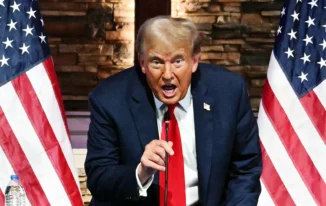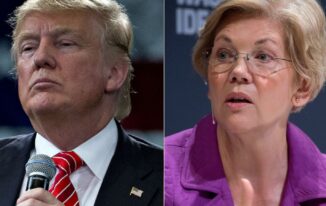In a twist that shows the global cat-and-mouse game in tech regulation, Chinese AI engineers have devised ways to circumvent the U.S. export ban on advanced artificial intelligence chips by Nvidia. While there are stringent controls in place to throttle China’s development of AI, these engineers are now said to obtain the powerful chips from Nvidia through intermediaries.
A report by the Wall Street Journal reveals how Chinese companies use brokers who procure servers installed with Nvidia Co.’s AI chips without physically importing the banned hardware.
Some of those transactions are even done in cryptocurrency to conceal the deal, making enforcement greatly difficult.
One of the cases involves a former Bitcoin miner, Derek Aw, who now collaborates with Chinese firms. According to reports, Aw persuaded U.S. and Dubai investors to buy AI servers equipped with Nvidia’s H100 chips. He installed the servers in an Australian data center that later supplied AI computing power to a company based in Beijing.
Chinese AI companies find ways to stake claim to access to this crucial component, even as the U.S. attempts to restrict exports of advanced chip technology.
This has included the rental of servers powered by Nvidia from current global tech giants like Google and Microsoft. Significantly, Nvidia has refused to comment on the issue.
In response to this cat-and-mouse game, Nvidia designed three new chips—including the H20—to precisely fall under the existing U.S. export controls on China.
However, analysts at Jeffries expect Washington to ban the H20 for real when the Biden administration reviews its semiconductor export controls later in October.
More severe moves are also rumored to be in play, including prohibiting allies from selling advanced chipmaking gear to China under a little-known regulation called the foreign direct product rule.
It is also rumored that nVidia has been working on a version of its newest AI platform, internally codenamed Blackwell, for the Chinese market. Called tentatively the “B20,” this newer version would be complied with U.S. trade restrictions, and distributed with a local partner, Inspur, into the Chinese market.
Most interestingly, legal experts reveal that people involved in indirect access to banned Nvidia AI chips do not violate any laws. Cloud companies rationalize that the restrictions on U.S. trades do not apply to them as they only represent access to American cloud services.
A proposed rule from the U.S. Commerce Department, however, targets the blocking of “foreign malicious actors” to inhibit their ability to use U.S. cloud infrastructure, tightening the noose further.
The case epitomizes the complexity and challenge involved in enforcing a technology ban in a more globalized and interdependent world where ingenuity usually finds alternatives to restrictions.














